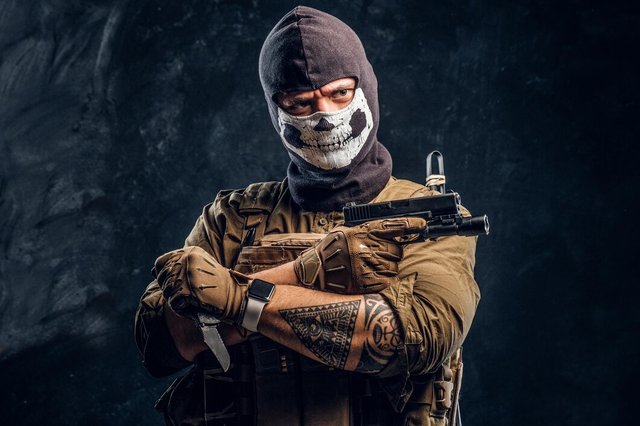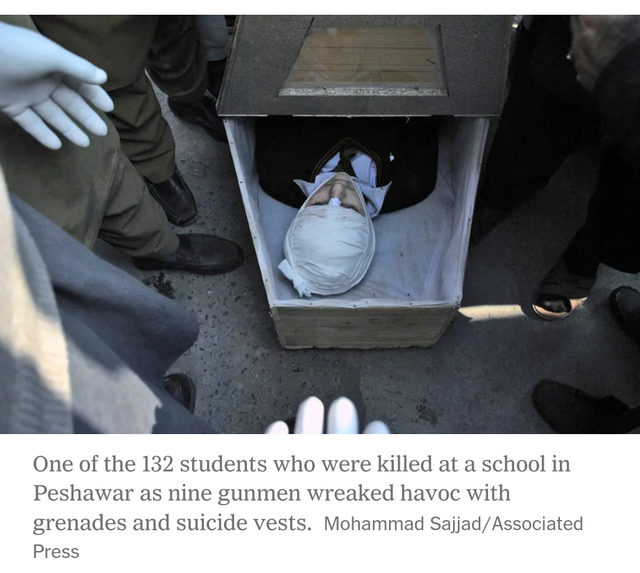Ten Years On: The Day Our Nation Wept
16th December,
It's one decade completed when we witnessed our flower city torn apart by a tragedy that shook the nation to its core. An APS attack, one of the darkest days in Pakistan's history, left scars that may never heal.
I still remember that December morning. We had just reached school in Lakki Marwat when one of our teachers, his face pale and voice trembling, shared the horrifying news: "APS is under attack." A chill ran down my spine. Murmurs swept through the classroom. Our young minds could barely grasp the gravity of what was unfolding.
In Peshawar, at the Army Public School, students—dreamers with notebooks in hand—were ambushed by terrorists. Their innocence was shattered in a hail of bullets and smoke. The death toll rose swiftly, with 132 children and 10 staff members losing their lives. Their classrooms, once filled with the hum of learning, became sites of unimaginable horror.
A mother, her eyes brimming with tears, shared her anguish with a journalist:
"I sent my son to school to learn, not to return in a coffin. Every morning I still set his plate for breakfast, hoping this nightmare ends." Her pain echoes the heartbreak of countless families whose children became martyrs that day.

The attack was meticulously planned, aimed not only to take lives but to shatter hope. A journalist from Dawn later wrote:
"The terrorists targeted the future of Pakistan, but in their brutality, they also united the nation in grief and resolve."
A survivor, a boy no older than fourteen, recalled the harrowing moments:
"We heard gunfire, and then they entered our classroom. I closed my eyes and pretended to be dead. My friend beside me... he didn’t make it." His voice quivered as he described the moments when childhood dissolved into terror.
The courage of the teachers and staff stood out amidst the chaos. Tahira Qazi, the principal, refused to abandon her students. Witnesses recounted how she confronted the attackers, trying to protect her children till her last breath. Her sacrifice became a symbol of bravery, remembered with reverence.
The aftermath was surreal. Funeral processions filled the streets of Peshawar, each one a reminder of the unimaginable loss. In homes across the city, families clung to memories—the last school project, a favorite toy, a half-read book. One mother held up her child’s bloodstained uniform and wept:
"This is all I have left of him now. Just this uniform."
Journalists and writers from across the world condemned the atrocity. In her book "I Am Malala", Malala Yousafzai later reflected:
"The attack on APS was not just an attack on a school but on education, on hope, on every child’s right to dream."
Eyewitnesses described scenes of chaos as rescue teams worked tirelessly to evacuate survivors. An army officer, who led the operation, shared:
"We were trained for warzones, but nothing prepares you for this—for carrying the lifeless bodies of children out of their classrooms."
The attack also left a psychological wound on survivors. Many children struggled with post-traumatic stress disorder (PTSD), their nights haunted by the sound of gunfire. A teacher at APS, who survived the ordeal, remarked:
"We try to rebuild, but every corner of the school reminds us of that day."
 Snap Shot Snap Shot |
|---|
Yet, amidst the grief, there arose a collective resolve. Vigils were held across the nation. People lit candles, held prayers, and vowed never to forget. The resilience of the Pakistani people shone through the darkness. In the words of a poet:
"They tried to silence our children, but their light shines brighter than ever."
Educational reforms followed the tragedy. Schools across Pakistan implemented stricter security measures. The APS attack became a turning point in the nation’s fight against terrorism. The National Action Plan (NAP) was intensified, with renewed efforts to eliminate militancy.
A decade later, the memories remain raw. Every year, on 16th December, families gather at the APS memorial, placing flowers and reciting prayers. The walls of the school are adorned with pictures of the martyrs—smiling faces that now symbolize the cost of peace.
One mother, standing at her son’s picture, whispered:
"He wanted to be a doctor. Now, he is a hero."
The APS attack is a stark reminder of the fragility of life and the resilience of the human spirit. While the pain endures, so does the determination to protect future generations. As the nation remembers its lost flowers, the words of one journalist resonate:
"Their sacrifice was not in vain. In their martyrdom, they gave Pakistan a renewed hope for a brighter, safer tomorrow."
Their legacy is etched into the heart of the nation, a somber yet powerful reminder that even in the face of unimaginable tragedy, hope prevails.
Regards ,
artist1111